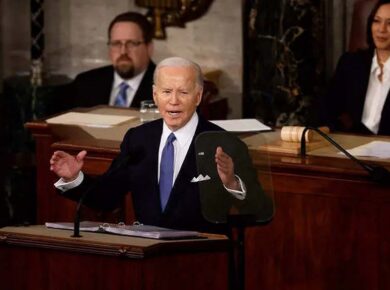Recent research suggests that recessions, often associated with economic hardship and social strain, might have an unexpected silver lining: longer life expectancy. Despite the economic challenges they bring, recessions appear to correlate with increased longevity, shedding light on the complex interplay between economic conditions and public health.
Unveiling the Phenomenon
In a new paper titled “Lives vs. Livelihoods,” health economist Amy Finkelstein and her team delve into the impact of the Great Recession on mortality rates in the United States. Surprisingly, they discovered that during this period of economic downturn (2007-2009), age-adjusted mortality rates declined as unemployment rates rose. The correlation was particularly pronounced among older adults and those without a college education.
The Pollution Connection
While investigating potential explanations, researchers ruled out factors like lifestyle changes and healthcare access. Instead, they identified a compelling link between unemployment and reduced air pollution. Counties experiencing higher job losses also saw significant declines in air pollution levels, primarily attributed to decreased vehicular traffic and industrial activity during recessions.
Addressing Environmental Factors
The observed decline in mortality rates, particularly from heart disease, suicide, and car accidents, can be attributed to the reduction in fine particulate matter (PM2.5) pollution. This environmental improvement disproportionately benefited individuals in lower-income communities, where exposure to pollutants is often higher.
Rethinking Economic Growth
The findings challenge the conventional notion that economic growth is synonymous with societal well-being. While economic prosperity generates employment opportunities, it also comes with hidden costs, including adverse health outcomes linked to pollution and stress.
The Degrowth Dilemma
The degrowth movement questions the relentless pursuit of GDP growth as a measure of progress, advocating for a more holistic approach to human flourishing. While shrinking the economy may not be a viable solution, the movement highlights the need for sustainable growth that prioritizes health, equity, and environmental stewardship.
Pursuing Better Growth
Rather than settling for stagnant economies or embracing indiscriminate degrowth, the focus should be on fostering “better growth.” This entails implementing robust regulations, promoting innovation, and prioritizing investments in public health and environmental conservation.
Striking a Balance
As we navigate the complexities of economic policy and public health, it’s essential to recognize the interconnectedness of growth and well-being. Achieving a harmonious balance between economic prosperity and social welfare requires nuanced approaches that prioritize human health and environmental sustainability.
In essence, the research underscores the importance of reimagining our metrics of progress and pursuing economic models that promote both prosperity and longevity.










